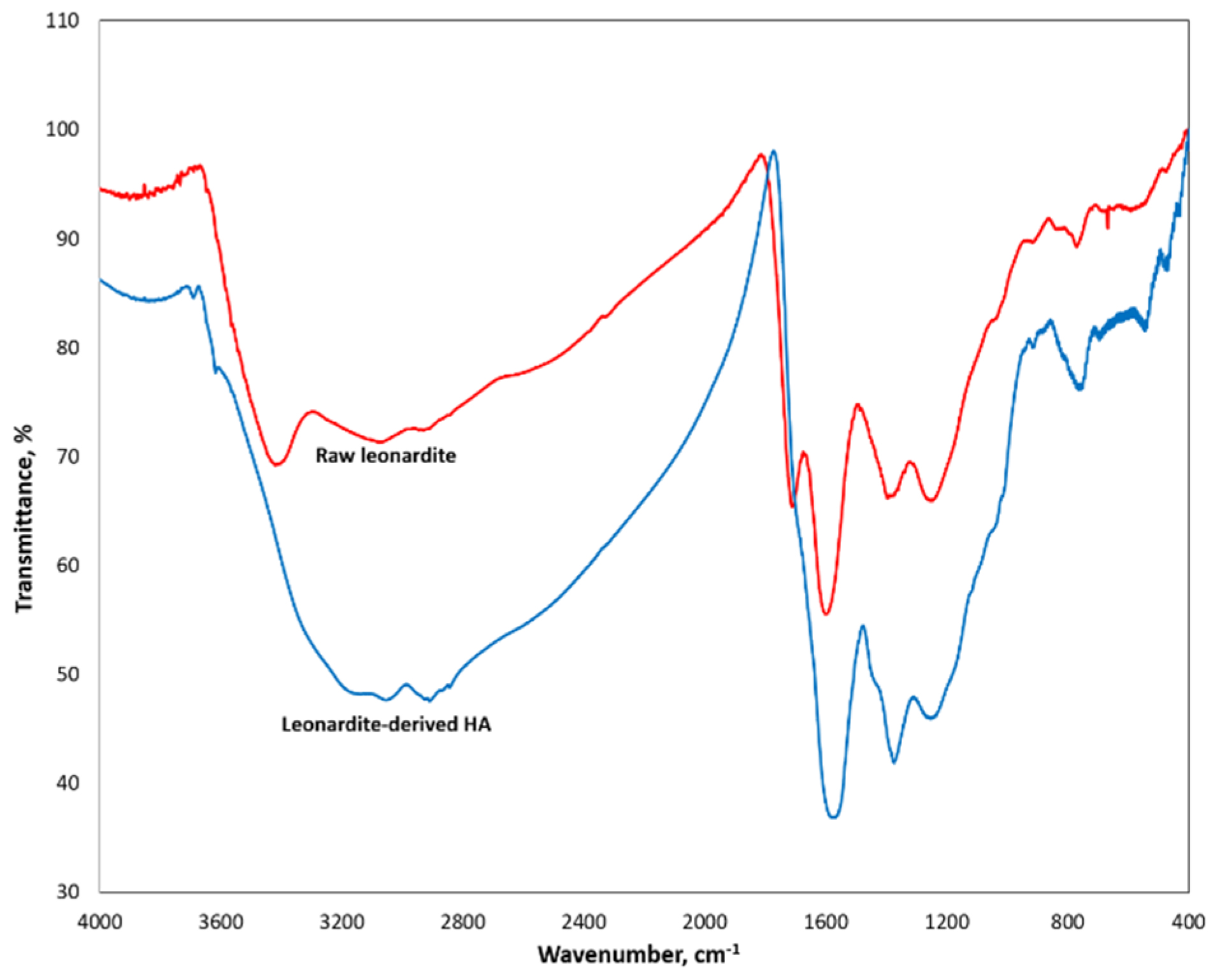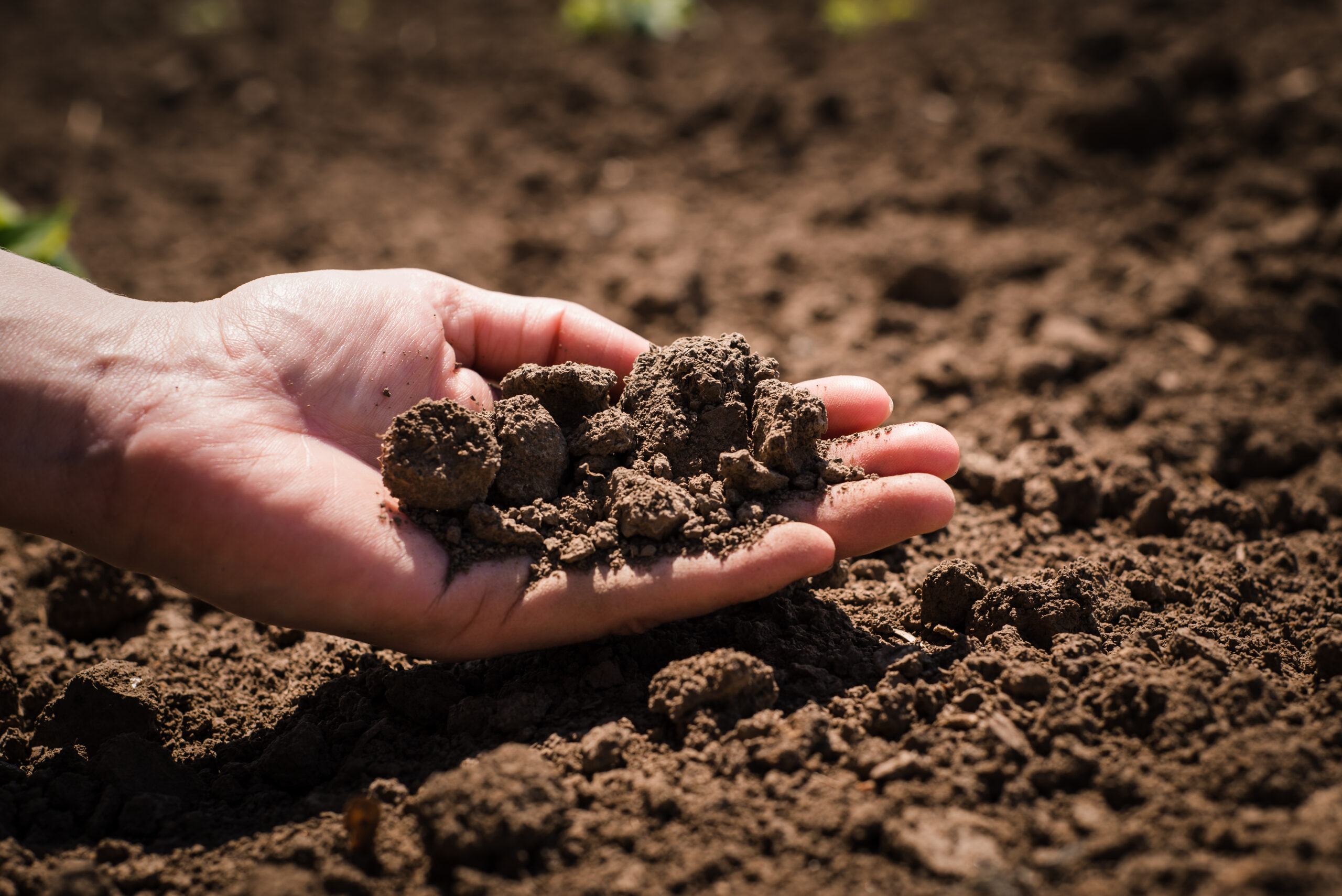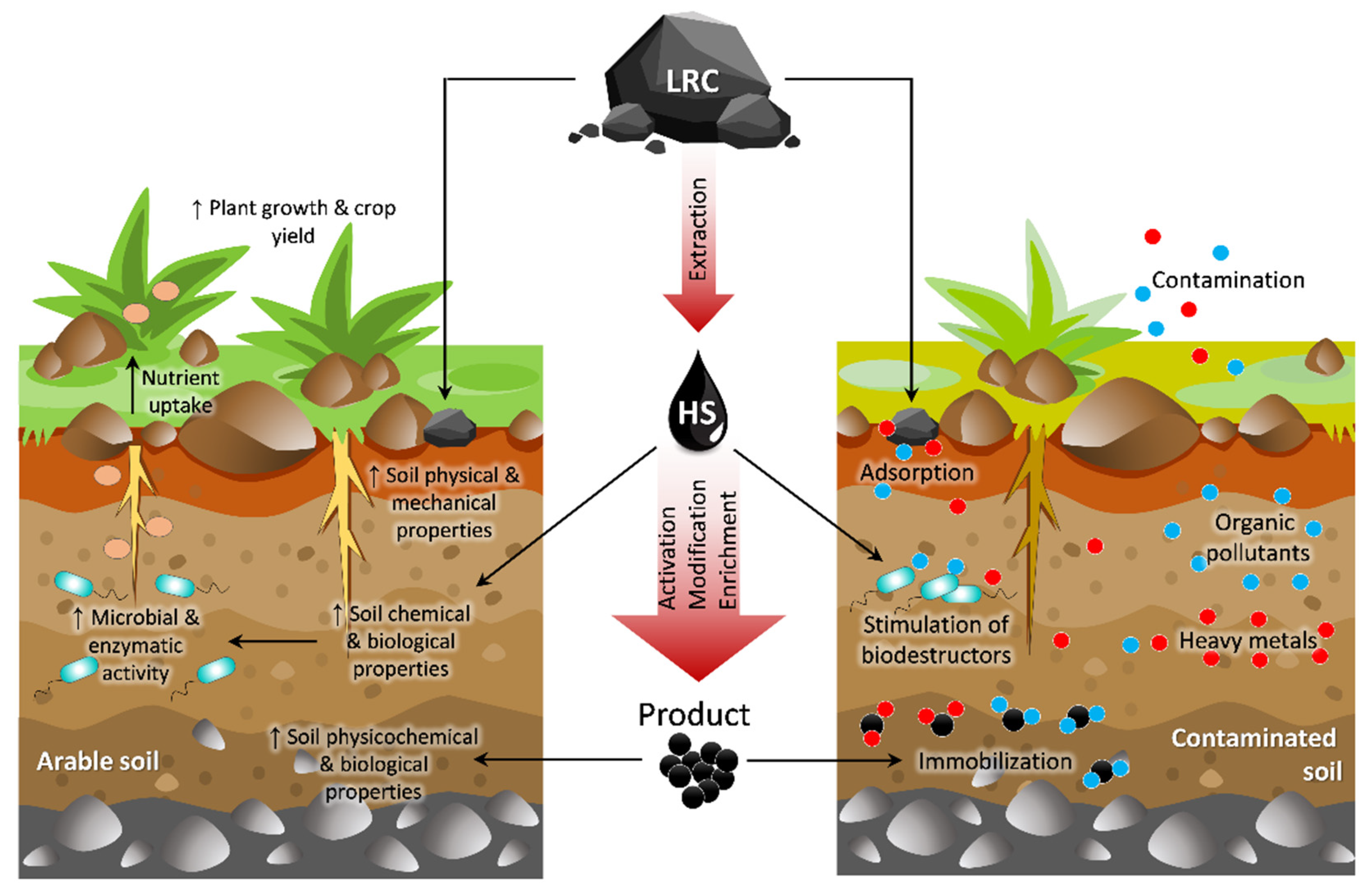Leonardite: The Soil Amendment That Can
Leonardite is a naturally occurring organic soil amendment that is rich in humic and fulvic acids. Humic and fulvic acids are the most important components of soil organic matter, and they play a vital role in plant growth and soil health.
Leonardite is found in sedimentary deposits that were formed millions of years ago from the decomposition of plant and animal matter. It is most commonly found in North America, but it can also be found in other parts of the world, such as Australia, Russia, and China.
Leonardite has a number of beneficial properties that make it an effective soil amendment. It can:
- Improve soil structure and drainage
- Increase water retention
- Improve nutrient availability
- Promote plant growth and development
- Reduce the risk of disease and pests
- Enhance the growth of beneficial soil microbes
- Improve soil pH
- Reclaim and remediate contaminated soils
Leonardite can be used in a variety of settings, including:
- Agriculture: Leonardite can be used to improve the quality of agricultural soils, leading to increased crop yields and improved plant health.
- Horticulture: Leonardite can be used to improve the quality of potting mixes and garden soils, leading to healthier plants and more beautiful flowers.
- Landscapes: Leonardite can be used to improve the quality of turfgrass and other landscape plants.
- Remediation: Leonardite can be used to reclaim and remediate contaminated soils, making them safe for agricultural and other uses.
Leonardite is a safe and effective soil amendment that can be used to improve the quality of soil and promote plant growth. It is a natural product that is biodegradable and environmentally friendly.
Main Content
Here are some of the specific benefits of using leonardite as a soil amendment:
- Improves soil structure and drainage: Leonardite helps to break down clay and other compacted soils, making them more porous and easier for water and air to penetrate. This improves drainage and aeration, which can help to prevent root rot and other diseases.
- Increases water retention: Leonardite has a high cation exchange capacity (CEC), which means that it can hold onto nutrients and water. This helps to keep plants hydrated during dry periods and can also help to reduce nutrient leaching.
- Improves nutrient availability: Leonardite helps to chelate nutrients, making them more available to plants. This can help to improve crop yields and the overall health of plants.
- Promotes plant growth and development: Leonardite has been shown to promote root growth and development. This can help plants to absorb more nutrients and water, which can lead to increased growth and productivity.
- Reduces the risk of disease and pests: Leonardite can help to suppress the growth of harmful bacteria and fungi. This can help to reduce the risk of plant diseases and pests.
- Enhances the growth of beneficial soil microbes: Leonardite provides a food source for beneficial soil microbes, such as bacteria and fungi. These microbes play an important role in the decomposition of organic matter, nutrient cycling, and plant health.
- Improves soil pH: Leonardite can help to raise the pH of acidic soils. This can be beneficial for plants that prefer neutral or alkaline soils.
- Reclaims and remediates contaminated soils: Leonardite can be used to reclaim and remediate contaminated soils. It can help to bind to and remove heavy metals and other pollutants from soil, making it safe for agricultural and other uses.
Conclusion
Leonardite is a versatile and effective soil amendment that can be used to improve the quality of soil and promote plant growth. It is a safe and natural product that is biodegradable and environmentally friendly. If you are looking for a way to improve the quality of your soil, leonardite is a great option.
Leonardite is a natural organic soil amendment that is rich in humic and fulvic acids. These acids have a number of beneficial effects on soil, including:
- Improving soil structure and drainage
- Increasing water retention
- Buffering pH levels
- Promoting the growth of beneficial soil microbes
- Providing nutrients to plants
Leonardite can be used to improve the quality of any soil, but it is especially beneficial for sandy soils, clay soils, and soils that are low in organic matter. If you are looking for a natural way to improve the health of your soil and boost the growth of your plants, leonardite is a great option.
To learn more about leonardite soil amendment, I recommend visiting Garden Wiki. This website provides a wealth of information about leonardite, including its benefits, uses, and application rates. You can also find a list of retailers where you can purchase leonardite.
FAQ of leonardite soil amendment
- What is leonardite?
Leonardite is a naturally occurring organic matter that is formed from the decomposition of plant material over millions of years. It is a dark brown or black material that is rich in humic and fulvic acids. These acids are beneficial to plants because they help to improve soil structure, water retention, and nutrient availability.
- What are the benefits of using leonardite as a soil amendment?
Leonardite has a number of benefits as a soil amendment, including:
* Improving soil structure: Leonardite helps to break down clay and sand particles, making the soil more loamy and easier for plants to root in.
* Increasing water retention: Leonardite has a high cation exchange capacity, which means it can hold onto water and nutrients, even in dry conditions.
* Improving nutrient availability: Leonardite releases nutrients slowly over time, which helps to prevent nutrient leaching and ensures that plants have a steady supply of nutrients.
* Promoting plant growth: Leonardite has been shown to promote root growth, increase photosynthesis, and improve crop yields.
- How do I use leonardite as a soil amendment?
Leonardite can be used as a topdressing or incorporated into the soil. The amount of leonardite you need to use will depend on the type of soil you have and the desired results. In general, you will need to apply 1-2 pounds of leonardite per 100 square feet of soil.
- Is leonardite safe to use?
Leonardite is safe to use in gardens and lawns. It is not a fertilizer, so it will not burn plants. However, it is important to note that leonardite can stain clothing and surfaces, so it is best to wear gloves and eye protection when handling it.
- Where can I buy leonardite?
Leonardite is available at most garden centers and online retailers.
Image of leonardite soil amendment
Here are 5 different images of "leonardite soil amendment" from Pinterest:
- Image 1: A bag of leonardite soil amendment sitting on a table. The bag is labeled "Leonardite Soil Amendment" and the company name "Black Gold."

- Image 2: A handful of leonardite soil amendment being spread over a plant pot. The soil amendment is a dark brown color and has a crumbly texture.

- Image 3: A garden bed with leonardite soil amendment mixed in. The soil amendment has improved the drainage and aeration of the soil, and the plants are growing healthy and green.

- Image 4: A tree with leonardite soil amendment applied to the root zone. The leonardite soil amendment is helping the tree to absorb nutrients and water, and the tree is looking healthy and vibrant.

- Image 5: A group of flowers growing in leonardite soil amendment. The flowers are bright and colorful, and they are thriving in the nutrient-rich soil.

Post a Comment for "Leonardite: The Soil Amendment That Can"